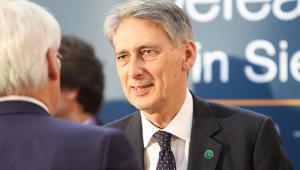The referendum, which the Leave campaign won by 52% to 48%, swiftly triggered the resignation of the prime minister, David Cameron. His close ally chancellor George Osborne is not expected to remain in office for much longer.
Responding to the result, CIPFA chief executive Rob Whiteman cautioned against any “knee-jerk reactions” from government and urged ministers to carry out a detailed analysis of the public finances before making any decision.
“Many councils, hospitals and schools are already on the brink – they would not easily withstand shocks to their funding,” he said.
“During the transition to a new prime minister and negotiations to leave, public bodies that receive European Structural and Investment funding in particular, will seek assurance that this funding will be maintained.”
Whiteman added that CIPFA would work closely with the government to ensure a smooth transition.
“And we will keep working in Europe. The world economic march to globalisation over coming decades will continue and CIPFA will be pleased to support UK, EU and international public bodies to learn from each other to meet their challenges.”
In a statement, the Local Government Association underlined the role of local government in “bringing communities together” following the vote.
It added that “councils in England need a seat around the table when decisions are taken over how to replace EU laws as part of the UK’s exit negotiations.
“There cannot be an assumption that power over [council] services is simply transferred from Brussels to Westminster… the power over how to run them should rest locally”.
For the NHS Confederation, chief executive Stephen Dalton said the NHS had “broadly benefited from being in the EU and leaving it will undoubtedly have implications which are yet to be clearly understood”.
He urged a strong and “nuanced” agreement with the EU, which recognised how intertwined NHS and EU policies had become.
Dave Prentis, general secretary of the public sector union Unison, which called for a Remain vote, said Leave campaigners needed to be held to account for the promises they had made; specifically, that NHS funding will increase and workers’ rights be protected.
“But this also has to be a time for our country to heal,” he added.
“Over the coming weeks and months, all political leaders must think about how to address the issues that people in our communities care most about – falling incomes, insecure jobs, unaffordable housing and the huge challenges facing our public services after more than half a decade of cuts.”
For charities, Dan Corry, chief executive of New Philanthropy Capital, said there would be a period of uncertainty for the sector. Cameron had been expected to unveil a “life chances” policy programme if the outcome had been Remain, and charities were expected to play a central role.
“If the UK hits economic trouble as a result of Brexit – as the ‘In’ side long argued – this will mean sources of public funding drying-up even further,” Corry said.
“Few pundits saw this result coming six months ago. Where charities may now have a key role is in trying to bring together communities which have been divided by a pretty aggressive referendum campaign on all sides. Local groups can do a lot to help communities plan for their future outside the EU”.




















